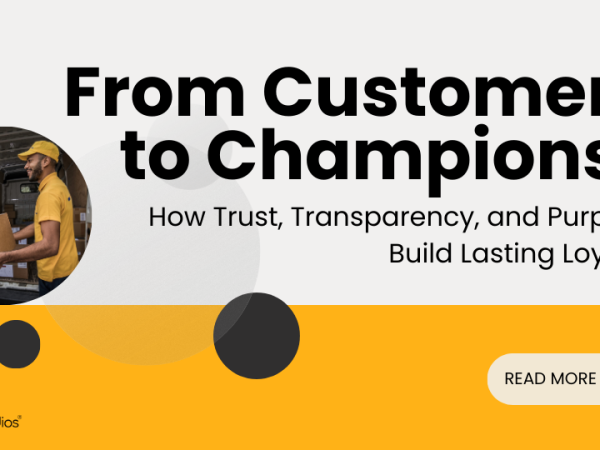
Mastering Your Startup Exit: The Insider’s Playbook
Every founder dreams of the perfect exit — that pivotal moment when years of grit, risk, and late nights finally translate into success. But behind every celebrated acquisition headline lies a complex playbook of strategy, timing, and preparation that few talk about.
At its core, an exit isn’t something you stumble into — it’s something you prepare for from day one.
1. Plan Early, Even If You Don’t Plan to Sell
Many founders wait too long to think about exits, assuming they’ll only deal with it “when the time comes.” But the reality is that every startup decision — from founder agreements to board composition — influences how an exit unfolds.
The founders who fare best are those who build with optionality. They’re clear on ownership structures, decision-making rights, and what success looks like if an acquisition opportunity arises. It’s not pessimism — it’s foresight.
2. Great Companies Don’t Get Sold — They Get Bought
One of the most powerful truths in the startup world is that great companies rarely need to chase buyers. They attract them.
When you focus on building a visionary product, scaling responsibly, and getting the market talking about you, acquirers take notice. Desperation, on the other hand, is a deal killer. The best exits often happen when you don’t need one.
Still, being noticed isn’t luck — it’s design. Build relationships with potential acquirers early. Understand who might want your technology, your talent, or your market position. And when the time comes, you’ll already be on their radar.
3. The Power of Leverage
Leverage is everything in negotiation.
A founder once turned a near-bankruptcy into a $100M+ acquisition by raising new capital after being approached by a tech giant. The message was clear: we don’t need to sell. Within months, the offer multiplied sixfold.
The takeaway? Always have a viable alternative. Another funding round, a competing offer, or even a credible growth plan can dramatically shift power in your favor. Buyers pay premiums when they fear missing out.
4. The Timing Equation
Knowing when to exit is both art and science. Markets shift, competitors rise, technologies become obsolete overnight. The best founders constantly read the landscape — financial, technological, and emotional.
Sometimes, an acquisition isn’t just about cashing out; it’s a way to scale faster, access global distribution, or protect your innovation from being outpaced. Other times, the smartest move is to walk away and keep building.
But never bet everything on the belief that things will only go up. As one founder put it: “The music can stop at any time — make sure you’ve got a chair.”
5. Due Diligence Starts on Day One
The most stressful part of any exit isn’t the offer — it’s the due diligence.
Too many deals fall apart because of missing documents, legal oversights, or undisclosed liabilities. Founders who treat documentation as an afterthought often find themselves scrambling when the finish line is in sight.
The smart move? Build your data room as you go. Keep board minutes, cap tables, and key contracts organized from the start. It signals professionalism, speeds up the process, and prevents last-minute surprises that can kill a deal.
6. Transparency Builds Trust
Acquisitions aren’t just about assets — they’re about people.
Buyers aren’t only acquiring your product; they’re deciding whether they want to work with you. Honesty about challenges, risks, and lessons learned earns more respect than overselling perfection.
Transparency doesn’t weaken your position — it strengthens your credibility.
7. When Deals Fall Apart
Even with preparation, some exits collapse in the eleventh hour — a board disagreement, a shift in market conditions, or simple misalignment. The lesson? Always manage two sales at once: the external one with the acquirer, and the internal one with your team and investors.
Misaligned expectations can sink a great deal faster than bad market timing. Know who holds voting rights, understand investor preferences, and ensure everyone’s incentives are clear before negotiations begin.
8. Valuation Is Both Art and Negotiation
Founders often overestimate — or worse, underestimate — their worth. The true value of your company depends not just on revenue or profit, but on traction, IP, growth potential, and strategic fit.
For some startups, value lies in the tech; for others, it’s in the team or customer base. Comparing your company to recent acquisitions in your sector (“comps”) can help ground expectations, but negotiation — and leverage — ultimately determine the final number.
And remember: undervaluing your company out of fear of losing a deal can be more damaging than overreaching.
9. The Human Side of Exiting
Finally, it’s worth remembering: an exit isn’t the end. Many founders discover post-sale that they miss the chaos, creativity, and purpose of building. Some struggle with the identity shift after leaving their own creation behind.
That’s why the most fulfilling exits aren’t just financial — they’re strategic, values-aligned, and open the door to the next great adventure.
Final Thoughts
Mastering your startup exit is about far more than timing the market or finding a buyer — it’s about building optionality, preparing early, and knowing your worth.
When founders combine strategic foresight with disciplined execution, they don’t just exit — they elevate.


